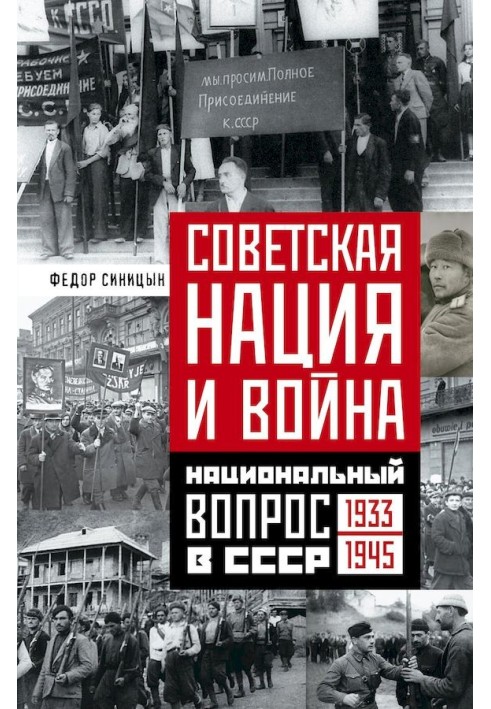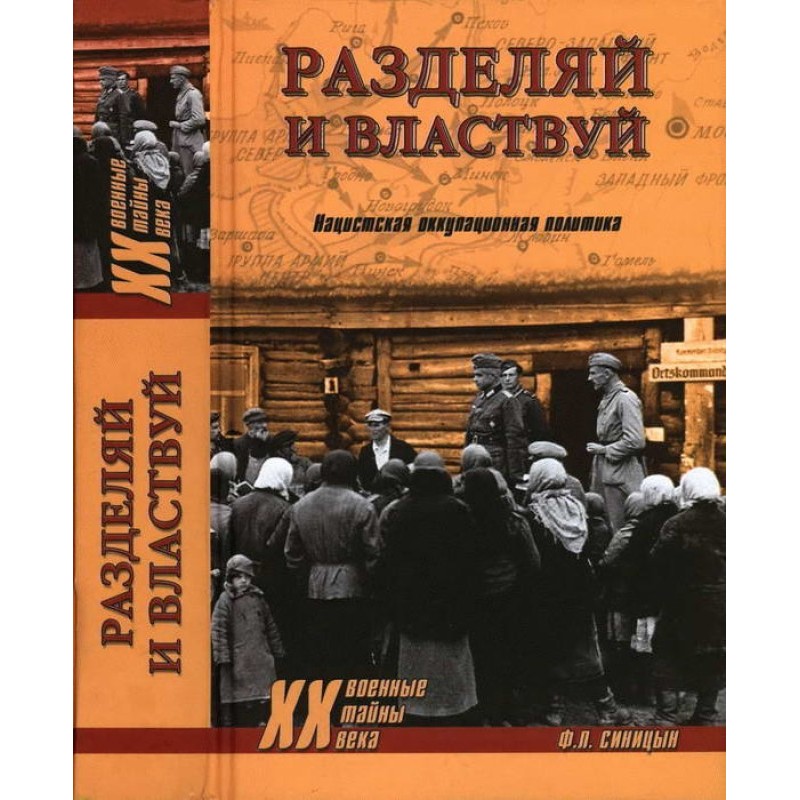The Soviet nation and war. The national question in the USSR, 1933–1945
 Instant download
Instant download
after payment (24/7)
 Wide range of formats
Wide range of formats
(for all gadgets)
 Full book
Full book
(including for Apple and Android)
In the 1930s. In the Soviet Union, the process of creating a political nation was launched on the basis of the Russian people, their history, language, culture and ideology of “Soviet patriotism.” The unity of the peoples of the USSR was due to objective reality - the failure of the concept of “world revolution”, as well as the danger of a new big war, which became obvious after A. Hitler came to power in Germany in 1933. Taking these factors into account, J. V. Stalin was forced to take a course to build the Soviet Union as a state in the traditional sense of the word. Great Patriotic War 1941–1945 became not only one of the most tragic periods of our history, but also a test of the strength of the new Soviet policy based on national patriotic values. Extensive documentary material shows all the main aspects of the national policy of the Soviet state in the 1930s–1940s: the formation of the concept “Soviet patriotism” and the Soviet political nation in the pre-war period, the implementation of Soviet policy in the limitrophe zone in the interwar period, the national question during the Great Patriotic War, the fight against anti-Soviet bandit insurgency, the foreign policy aspect of national policy (Slavic and Jewish factors, attitude towards the Germans and Japanese ), the national factor in foreign aggression against the USSR, the negative aspects of Soviet national policy (deportation of peoples) and, finally, the results of the implementation of Soviet policy in the pre-war and war periods of our history.
Data sheet
- Name of the Author
- Федор Синицын Леонидович
- Language
- Ukrainian
- Release date
- 2018
Reviews
Глибоке дослідження національної політики в СРСР
Книга "Радянська нація та війна" є вражаючим аналізом складних процесів, що відбувалися в Радянському Союзі в період з 1933 по 1945 рік. Автор детально розглядає формування радянської політичної нації, акцентуючи увагу на впливі історії, культури та ідеології національного патріотизму. Читач отримує можливість зрозуміти, як зовнішні та внутрішні фактори, такі як загроза війни та провал концепції світової революції, вплинули на політичні рішення Сталіна. Книга також розкриває важливі аспекти національного питання під час Великої Вітчизняної війни, показуючи, як радянська влада намагалася згуртувати різні народи під прапором спільної боротьби. Незважаючи на деякі недоліки в перекладі, текст залишається зрозумілим і доступним для читача. Це важливе джерело для всіх, хто цікавиться історією СРСР, національними відносинами та політичною історією XX століття. Рекомендую всім, хто прагне глибше зрозуміти складні процеси, що формували радянське суспільство.













